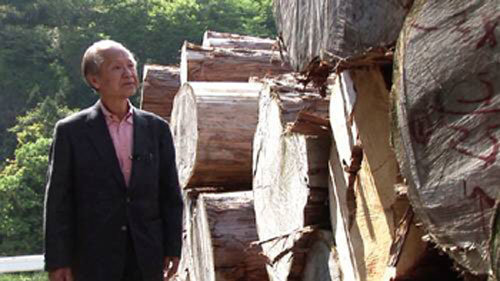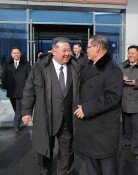The Life of Jin Chang-hyun, a World-Renowned Violin Maker in Japan
The Life of Jin Chang-hyun, a World-Renowned Violin Maker in Japan
Posted August. 15, 2005 03:05,

Special documentaries with unique themes will be broadcast on August 15 marking the 60th anniversary of liberation from the Japanese colonial era.
SBS, one of Koreas major TV broadcasting stations, will air Heavenly Violin produced by Cho Han-seon at 8:55 p.m. on August 15, which features the life of Jin Chang-hyun, 76, an ethnic Korean and worlds famous violin producer. Jin rose to the top as a violin maker in Japans closed artisan world.
The method of making string instruments that started in Italy has been passed down as a family secret, which allowed Italians to dominate the title of master craftsmen. However, an ethnic Korean in Japan named Jin Chang-hyun, who was self-taught and unknown to the world, surprised people by winning five gold medals out of six in a world string instrument making contest in Philadelphia in 1976. Since then, he has earned the name mastermaker and is recognized as a world renowned violin maker.
Jin went to Japan at the early age of 14 during Japans colonial rule of Korea to avoid conscription and tried to learn making string instruments while pulling rickshaws and engaging in manual labor, but Japanese artisans refused to teach him. No artisan was willing to accept Koreans as apprentices. So he had to learn violin-making techniques on his own.
He is currently dubbed the Stradivarius (Italian artisan who created the best instrument ever three centuries ago) of Orient in Japan. His instruments are sold for hundreds of millions of dollars as best quality products in Japan. His life was recreated through a Japanese TV drama series and is also being published in comic books.
Meanwhile, EBS will air a documentary titled Unit 731, Secrets of Human Experimentation at noon on August 15. This program once became a hot issue when featured in France by its public broadcasting service France Two. With interviews with then-unit members, it exposes the brutality of Japans Unit 731 that claimed thousands of lives by conducting cruel experiments on living individuals in Manchuria from 1938 to the end of WWII.
Unit 731 was Japans secret military organization in charge of researching biological warfare weapons in the 1930s. It conducted bacterial and drug experiments on captives for 14 years. Throughout the show, viewers can see and hear the truth about Unit 731 that has been obscured by Japanese distortions of history, the site of the units concentration camps and facilities for live human experiments, and other previously unreleased materials.
zozo@donga.com







